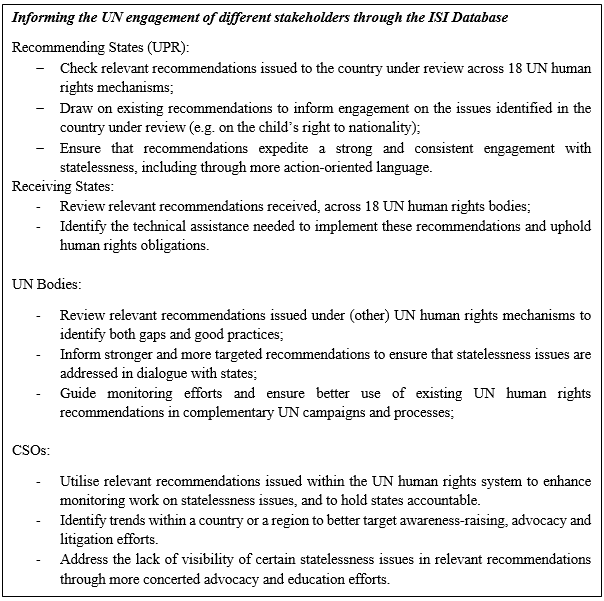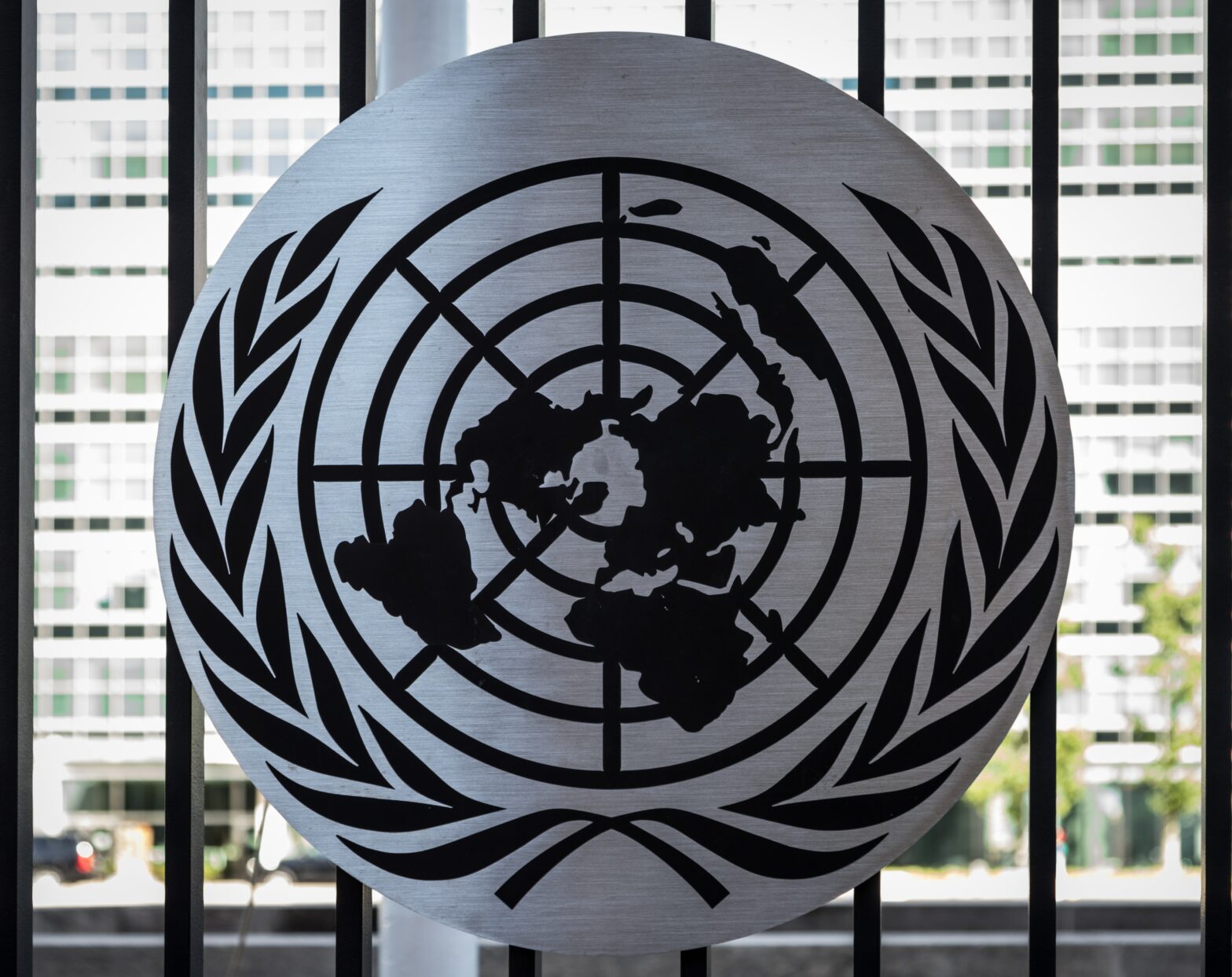Share Twitter Facebook Email Copy URL
This article is part of our series dedicated to the 75th anniversary of the Universal Declaration of Human Rights.
ISI Database on Statelessness and Human Rights
Born in South Africa, Daniella was stateless for the first eight years of her life. Her Cuban parents had been away from Cuba for an extended period and were barred from transferring their citizenship to their daughter affecting her well-being, sense of identity and enjoyment of other rights. While Daniella’s court order declaring her to be a citizen of South Africa by birth was still pending, South Africa came under review by the Committee on the Rights of the Child (CRC Committee). The CRC Committee issued several strong and concrete recommendations on the child’s right to nationality including calling on South Africa to address challenges regarding the granting of nationality to otherwise stateless children. In the same month, the Supreme Court ordered the authorities to implement the legal safeguard designed to protect children from statelessness for Daniella and to grant her citizenship. Supplementing national advocacy and litigation with international engagement made an important contribution towards holding South Africa accountable for failing to adequately protect the right to a nationality for all children born in the country.
Article 15 of the Universal Declaration of Human Rights (UDHR) recognises the right to a nationality as a fundamental human right that should be enjoyed by all, and this right has been reaffirmed across a multitude of binding human rights treaties. Yet, statelessness pervades the life of more than 15 million people across the globe. The UDHR also affirms that “all human beings are born free and equal in dignity and rights”, meaning that human rights derive their authority from human dignity, not nationality. Yet, stateless people are among the most vulnerable and excluded. All too often, nationality continues to function as a gateway to other rights and so stateless people struggle to enjoy quality education and healthcare; safe, secure and dignified work; inheritance and ownership of property; and basic banking, communication and other services. By failing to uphold their international obligation to ensure every person’s right to a nationality or protect the human rights of stateless people, States breach international human rights law and need to be held accountable.
To strengthen knowledge of, engagement with and adherence to human rights standards relating to statelessness and the right to a nationality, the Institute on Statelessness and Inclusion (ISI) developed the ISI Database on Statelessness and Human Rights. This is a carefully designed and user-friendly tool that offers easy access to relevant recommendations issued to States within the UN human rights system. The ISI Database has so far reviewed the work of over 18 UN human rights mechanisms including the Universal Periodic Review (UPR), Treaty Bodies and Special Rapporteurs to uncover more than 2000 recommendations that address nationality and statelessness issues.
Τo allow the user to research, compare, and analyse the data, recommendations are ‘coded’ through a number of customisable filters (country, UN body, theme etc.). For example, with just two clicks, a local NGO engaging in advocacy work on the issue of gender discrimination and nationality rights in Bahrain can identify relevant recommendations issued within the UN human rights system. By simply selecting ‘Bahrain’ as the receiving state and ‘gender discrimination’ as the relevant theme, the NGO can single out the relevant recommendations and effectively promote and monitor their implementation. This functionality is fundamental to the effectiveness of the ISI Database as a tool to inform the work of a wide array of stakeholders as it allows them to engage with UN human rights standards and recommendations at the level of individual problems – especially important given the diversity of challenges encountered in relation to the right to a nationality and the human rights of stateless persons. A list of examples of how different stakeholders can use the ISI Database to inform and improve their UN engagement can be found at the bottom of this article.
The ISI Database has already been well received and hailed as a useful tool to help facilitate human rights advocacy on the issue by a number of human rights experts:
The Database is a phenomenal tool for people like me as a member of the CEDAW Committee, because it will allow me to very quickly find information that I would normally have to spend hours looking for. It will be so useful in preparing for the List of Issues and the Constructive Dialogue with States Parties. As a women’s rights activist, I can also see how powerful the information is and how the Database can be used to strengthen advocacy. It is a great resource to point journalists, students and others to for their research into statelessness and nationality.
Bandana Rana, Member of the UN Committee on the Elimination of Discrimination against Women
The ISI Database can also facilitate analysis on nationality and statelessness issues. Developed by ISI in collaboration with Rosa Luxemburg Stiftung (RLS), the report ‘Mainstreaming Statelessness and the Right to a Nationality in the Universal Periodic Review’ draws heavily on the way UPR recommendations are consolidated and curated within the ISI Database to evaluate the performance of the UPR on these issues to date. Demonstrating the evolution of engagement across the three UPR cycles, the evaluation offers insight into the role that this mechanism can play in promoting the right to a nationality, and the rights of stateless people, as well as into how UPR engagement might be strengthened in the future. For example, the analysis exposes that although discrimination is the main root cause of statelessness, the nationality rights of minorities (i.e. relating to racial/ethnic/religious discriminatory nationality systems) have been overshadowed within the UPR and urgently require increased attention.
The ISI Database has also enabled the development of the Factsheet on Childhood Statelessness and the Committee on the Rights of the Child published by ISI in collaboration with UNICEF. Recommendations collated in the ISI Database allowed for analysis presented in the factsheet that demonstrates an evolution of the CRC Committee’s engagement; providing more concrete and detailed direction on the action required and focusing on a wider range of issues directly relating to childhood statelessness and the child’s right to a nationality such access to nationality for stateless children. The factsheet also offers guidance on how the CRC Committee can support further advocacy in this area. For instance, it raises that although 60 States across the globe have no legal safeguard designed to protect children born in the country from statelessness, many of these States have not received any recommendations by the CRC Committee on this critical issue.
The ISI Database is an ideal tool to inform and strengthen the impact of the work of numerous stakeholders such as members of the diplomatic community, UN mandate holders, civil society organisations, legal practitioners, academics and activists. Consolidating recommendations issued by UN human rights mechanisms on nationality and statelessness under the ISI Database improves their accessibility and enables the development of analysis and tools that can feed into key stakeholders’ awareness raising, advocacy and litigation efforts. And it is these key stakeholders who can, in turn, enhance the visibility of statelessness and promote every individual’s right to a nationality, helping to affect real-world change in protecting the rights of stateless persons and realising the right to a nationality for all.
ISI continues to expand the dataset to incorporate more UN human rights mechanisms, including Voluntary Pledges made by States under the UPR and at the UNHCR High-Level Segment on Statelessness. The period covered will also be expanded to cover recommendations issued from 2000 onwards. More information on how to navigate the ISI Database can be found in the Database User Guide and Database DEMO.
The Database was developed by the Institute on Statelessness and Inclusion (ISI), with support from the Janivo Stichting, the Jacob Blaustein Institute for the Advancement of Human Rights and DLA Piper.

Vera Karanika
This article is part of our series dedicated to the 75th anniversary of the Universal Declaration of Human Rights.



